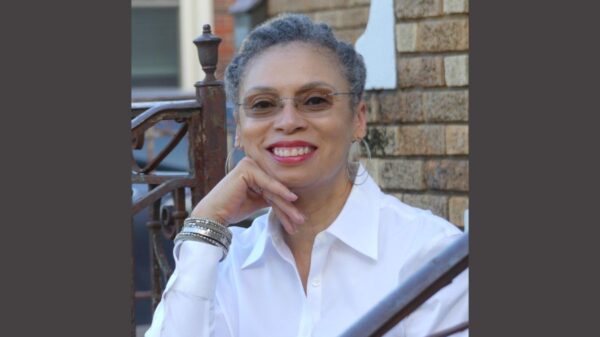By Valerie Fields Hill
News Editor
Texas Metro News
President Joe Biden
Ahmaud Arbery’s killing – witnessed by the world on video – is a devastating reminder of how far we have to go in the fight for racial justice in this country. Mr. Arbery should be here today, celebrat- ing the holidays with his mother, Wanda Cooper Jones, and his father, Marcus Arbery. Nothing can bring Mr. Arbery back to his family and to his community, but the verdict ensures that those who committed this horrible crime will be punished.
While the guilty verdicts reflect our justice system doing its job, that alone is not enough. Instead, we must recommit ourselves to building a future of unity and shared strength, where no one fears violence because of the color of their skin. My administration will continue to do the hard work to ensure that equal justice under law is not just a phrase emblazoned in stone above the Supreme Court, but a reality for all Americans.

Some North Texans were relieved – but emotionally drained – after watching weeks of testimony that ended Wednesday with a jury’s conviction of three white men of the killing of jogger Ahmaud Arbery.
The case raised concerns across the nation of questionable killings of unarmed Black people at the hands of white civilians and police officers.
“Praise God,” said Chandra Charles, a Grand Prairie mother of two daughters, one a college senior and the other a high school senior.
“They holler critical race theory,” said Charles, who is African American, speaking of politicians and others who downplay race in social, legal and historical contexts. “This (case) is all of it in a nutshell.”
According to Charles, the Arbery case, paired with similar cases involving the shootings of Black people while the victims seemingly were engaged in everyday activities had left her “emotionally drained” and exasperated at trying to explain to her two daughters her concerns over their safety.
“I talk to them, but I don’t think (my youngest daughter) Morgan is grasping it as a reality,” she said. “All the people they’ve been around, they’ve all been multiple races. When you talk to them about it…they don’t get it.”

Ken Granderson, co-founder and chief technology officer at BlackFacts.com, said he is surprised jurors in the trial came to a verdict of guilty on nearly all counts – and also relieved at what he views as a “prevailing of justice” in the case.
“The paradox of being Black in America is a simultaneous feeling,” he said, adding that he was surprised at the verdict and relieved that, this time, the justice system worked. “It’s sad that we see it work so rarely,” he said. “I’m concerned that we don’t know how many (similar cases) never even make it to trial.”
Meanwhile, a scholar at the University of Georgia who has watched the case, said many people of color, including himself, find themselves, as Granderson has, both surprised at the guilty verdict and that the case even was prosecuted.
In the Arbery case, prosecutors brought charges months after the jogger’s shooting and only after public cries to release video of the killing taken by one of the defendants, William “Roddie” Bryan, Jr.
The case underscored challenging race relations in Brunswick, Ga. The district attorney at the time was indicted on charges she obstructed a police officer following Arbery’s death.
A local prosecutor was accused of violating her oath of office by “showing favor and affection” to Gregory McMichael, another defendant and a former investigator in her office.
In light of the accusations, Georgia state Attorney General Chris Carr and the Georgia Bureau of Investigations took over the case.

Dr. Ryon Cobb, an assistant professor of sociology at the University of Georgia and a scientist at the Michigan Center for Urban African American Aging Research, said Wednesday’s verdict shook him.
“I’m shocked,” he said. “I resided in Florida when George Zimmerman killed Trayvon Martin and thought Arbery’s killers would walk free.”
Dr. Cobb, who researches race, ethnicity and socially oppressive systems among adults, said though prosecutors were faced with a near all-White jury in the trial, they appeared to deliberately downplay race as a factor in Arbery’s killing.
It could not be missed, however, given the three defendants are White and Arbery is a Black man, he said.
“No one involved in the case forgot Arbery was a Black man,” said Dr. Cobb, adding that while race was not explicitly brought up in the trial, it was implicit in the actions of the perpetrators.
On Wednesday, Travis McMichael, his father Gregory, a former law officer, and Bryan, their neighbor, all were found guilty in the fatal shooting of Arbery, who was unarmed and jogging through the men’s Brunswick, Ga. neighborhood.

“We don’t typically see police convicted of murder, given we’re in the South, especially in Georgia,” Dr. Cobb said. “My hat goes off to the prosecutors, Jamal Harrison Bryant, Al Sharpton, and the other activists who made today happen.”
The McMichaels and Bryan claimed that they acted in self-defense when they used two pickup trucks to chase Arbery, blocking him, and eventually shooting him.
The three said they were trying to execute a citizen’s arrest of Arbery, whom they believed had unlawfully entered an unsecured home under construction in the neighborhood.
Jurors, apparently, disbelieved the McMichaels’ and Bryan’s defense.
A panel of 12 jurors, 11 White and 1 Black, found Travis McMichael, who shot and killed Arbery; guilty of malice murder, four counts of felony murder, two counts of aggravated assault, one count of false imprisonment and one count of criminal attempt to commit false imprisonment.
Gregory McMichaels was found guilty of four counts of felony murder, two counts of aggravated assault, one count of false imprisonment and one count of criminal attempt to commit false imprisonment.
The McMichaels’ neighbor, Bryan, was found guilty of three counts of felony murder, one count of aggravated assault, one count of false imprisonment and one count of criminal attempt to commit false imprisonment.

All three men face sentences of up to life in prison for their roles in Arbery’s killing.
In Fort Worth, Correen Sanders, an engineer in private practice and mother of two teenagers, said Wednesday’s verdict had prompted her to renew conversations with her son and daughter over interactions they might encounter with police officers.
“I’m telling you, I was thinking about that on my way back from Wal-Mart just a few minutes ago,” Sanders said, adding that her son Mason, who wears his hair in braided styles, will begin driving soon.
“He’s going to be driving a BMW,” she said. “I was thinking to myself today, I need to tell him ‘If you get stopped, be respectful because they could kill you.’”
“As a parent, that’s something we have to live with,” said Sanders, who is African American. “Right now, this just seems like it’s so common and it’s scary. It’s so scary.”
Chandra Charles, in Grand Prairie, said the Arbery case, paired with similar cases involving the shootings of Black people while the victims seemingly were engaged in everyday activities had left her “emotionally drained” and exasperated at trying to explain to her two daughters her concerns over their safety.
“I talk to them, but I don’t think (my youngest daughter) Morgan is grasping it as a reality,” she said. “All the people they’ve been around, they’ve all been multiple races. When you talk to them about it…they don’t get it.”

The verdicts in the Arbery trial come one day after a Virginia jury awarded more than $26 million to plaintiffs who were injured during a demonstration in Charlottesville while they were protesting white nationalists.
The verdict in the Arbery case also comes a week after Kyle Rittenhouse was acquitted of shooting and killing two people and injuring a third in Kenosha, Wis., who were part of a Black Lives Matter demonstration.
Back in North Texas, social justice advocate June Jenkins, who is president of the Collin County branch of the NAACP, said the latest verdict is one of accountability.
“We cannot bring back the life of Ahmaud Arbery,” said Jenkins. “A guilty verdict is a step towards the accountability needed to ensure the actions of these three men are not ignored.”
Texas Metro News columnist Terry Allen and features editor Eva Coleman contributed to this report.









You must be logged in to post a comment Login